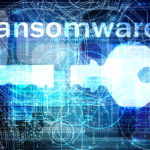The term cyberwar has become part of our casual lexicon – from the movies to the news, we hear about cyber-attacks pretty frequently.
It is easy to fear the unknown – but how afraid do you really need to be about the threat of cyber warfare?
What actually is cyberwar? Is it real or just another media scare tactic? And how might it affect us? Read on to answer these questions and more.
What Is Cyberwar?

Cyberwar (which is short for cyber warfare) is a kind of online conflict, where a nation-state or international organization attempts to damage another nation or organization’s computer or informational networks.
Cyberwar is defined as an act of aggression, made through a digital network, aimed at causing damage in the real world. This definition includes both attacks and defense.
Is Cyberwar Real?
In the 21st century, cyber warfare has become a reality. A growing number of experts reckon that the world is facing an entirely new kind of war.
This new form of conflict involves using computers, mobile phones, satellites, drones, and other technologies to attack each other. Every gadget you own could become a weapon on a virtual battlefield.
In fact, the US is so convinced that cyberwar will pose a real threat to their global power, that they have set up a government bureau to deal with it.
The new bureau will be called the Bureau of Cyberspace Security and Emerging Technology.
This bureau will lead US government diplomacy on a wide range of issues related to international cyberspace security and emerging technology.
These include securing cyberspace and other critical technologies, reducing the risk of cyber conflict, and winning in strategic cyber competition.
This means that the CSET will handle cybersecurity issues as a part of the US’s foreign policy and diplomatic efforts.
The CSET will act as an extension of the National Security Agency (NSA).
With millions, or even billions, of dollars on the line when information security is not handled adequately, the CSET’s inquiries are of utmost importance, for both the safety of Americans, and the health of the economy.
The State Department has said that CSET’s importance has only increased, since it was created in 2019, as international powers such as China, Russia, Iran, North Korea, and other cyber and emerging technology competitors become faster and more efficient.
The United States military has already seen cyber-attacks from adversaries. In 2010, for example, Chinese hackers attacked Google’s computer systems and stole information used by the company to generate its search engine.
What Would A Full-Blown Cyberwar Look Like?

Naturally, you will be wondering what an all-out cyberwar could look like, especially for normal citizens, as it is not something that we have any experience with, and there is no cyberwar in history to refer back to.
Cyber-attacks are hard to attribute and borderless. They can come suddenly and devastatingly.
Though governments are still fighting wars with physical weapons like tanks and planes, cyber weaponry is becoming more and more of a threat, as our lives become so intertwined with the digital world.
Our energy grids, infrastructure, private lives, financial systems, and other information are being attacked by hackers.
Cyberwar is distinct from our traditional idea of a war, as it is fought using technology. A cyberwar isn’t a physical battle, but it does still involve military forces, weapons, and tactics.
Other governments, institutions, companies, and individuals can use cyber weapons to harm people or damage property.
In our day-to-day lives, international cyber warfare could lead to loss of life and destruction of property and it could also cause economic losses.
However, though we are not in a full cyberwar, acts of cyber warfare are being committed (or being attempted) fairly commonly.
Cyber-espionage, cybercrime, and cyberterrorism are not the same thing but do come under the umbrella of ‘Acts of Cyberwar’. There are a few examples of cyberwar that we can take you through:
- A REvil ransomware attack was launched by hackers in Ukraine. This attack used sophisticated ransomware, which allowed criminals to take over Kaseya, a prominent tech firm’s network.
The criminals threatened to delete or encrypt important files unless they received a payment. REvil ransomware attacks have made the gang a whopping $200 million (estimated). However, not all REvil attacks wait for payment or steal any information.
Instead, some just damage the computer network irreparably, which costs the company millions. Kaseya claims that they did not pay the ransom, and instead used a decryption tool, but the attack still affected 1 million systems. - The 2007 Estonia Cyberwar attack is assumed to be the first instance of a country-wide cyber-attack. During the attack, around 58 Estonian websites went offline due to hackers, including those of huge companies, the government, banks, and media outlets.
- A cyber-attack on Sony’s PlayStation Network happened in 2011, which claimed the personal information of 77 million users, some of which were then found in information leaks.
- Ukraine’s Power Grid Attack was the first case of a cyber-attack on a power grid, and happened in 2015. The majority of the homes in the Ivano-Frankivsk region were left without any power for a few hours.
From these examples, you can start to get an idea about how cyberwar might impact you and your lifestyle – for the most part, it inconveniences citizens, through the loss of power, internet, or access to certain necessary sites.
Your data might even be involved in data leaks, which compromises any accounts you have, your privacy and security.
If you have a business, then a cyber-attack can cripple your computer systems, or take down your webpages, which can lead to huge sums of lost money as customers cannot reach your essential service.
Huge amounts of sensitive data, including employee and customer information, medicalm, and/or financial information is under threat from possible cyber-attacks.
Final Thoughts
Cyberwar is a threat – however, much of the hysteria and alarm surrounding acts of cyber warfare has been caused by its novelty and ambiguity.
As with all kinds of new technology, it has left us with no norms, standards, or expectations, which leaves room for the public to imagine, and subsequently, start to worry.
Primarily, it is an issue for governments, and the US is taking definitive action to defend from international cyber-attacks. If you have a business, look into measures to protect against hackers so all of your sensitive data stays private.
- IPSec vs. OpenVPN: Which Is Better? - December 10, 2022
- How to Turn Off VPN on Mac: A Step-by-Step Guide - December 10, 2022
- What Is a VPN Concentrator and What Does It Do? - December 10, 2022





